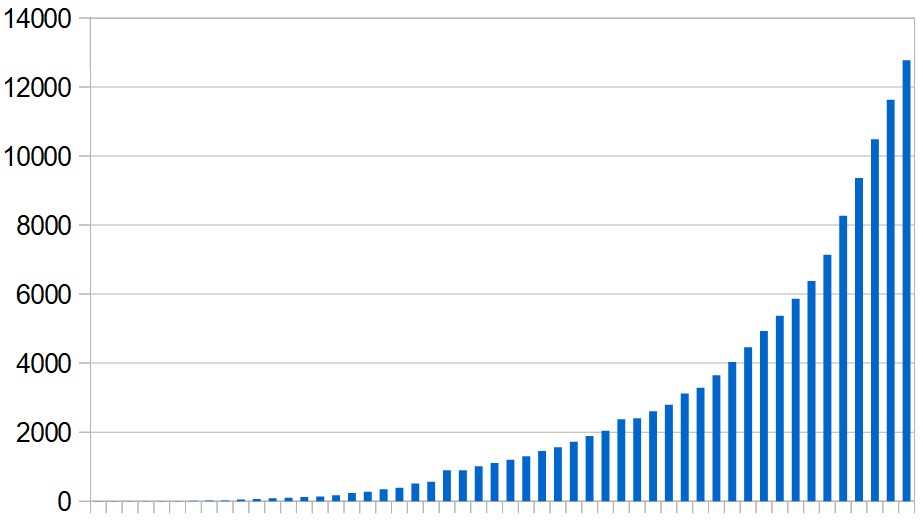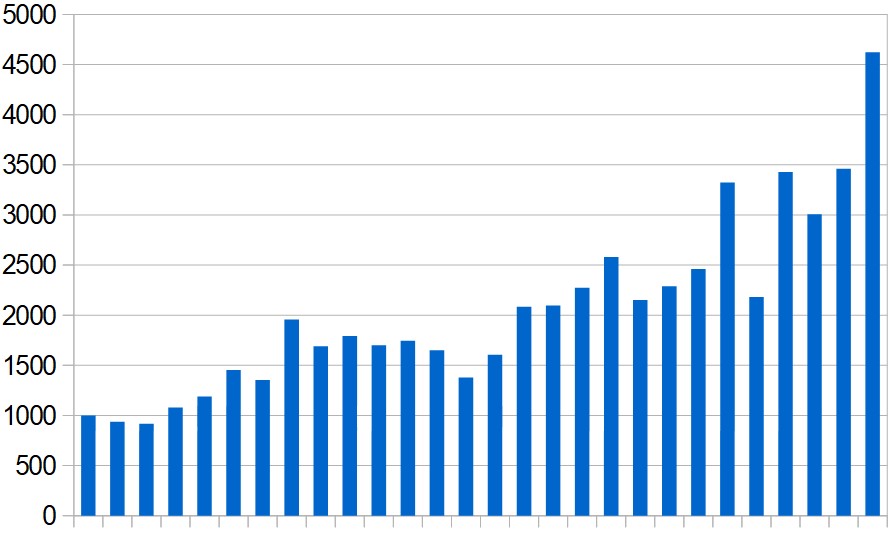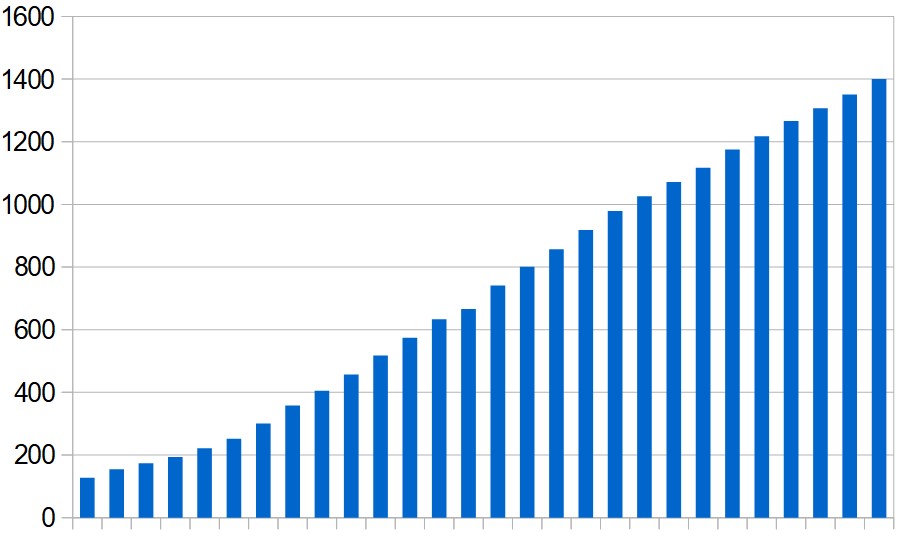
In Saudi Arabia the number of known Covid-19 infections has more than doubled during the past week. Earlier this month, when the tally was just over 2,000, the health minister warned that expert studies were predicting a minimum of 10,000 and a maximum of 200,000 confirmed cases "over the next few weeks".
The minimum figure was clearly wrong, because Saudi Arabia passed the 10,000 mark on Tuesday and the latest tally is 12,772 confirmed cases.
There are several reasons for this. One is that levels of testing have increased, revealing cases that otherwise would have gone undetected.
At the same time, though, the kingdom's preventive measures have been less effective than they might have been. The health minister has accused a "section of society" of not taking the precautions seriously. Corruption may also play a part: several officials have been charged with selling fake permits granting curfew exemptions.
But while some deliberately flout the rules there are thousands of others who have little choice – because of their living conditions. This is a sensitive issue for Saudi Arabia and the other wealthy states in the Gulf, but there are plenty of signs that the virus has taken root in their migrant communities. They have relied for years on cheap Asian labourers and are now reaping the effects of housing them in cramped and often squalid conditions.
CLICK HERE to jump to regional updates
The Saudis don't appear to have issued figures for infection rates among migrant workers compared with those among their own citizens, but in Bahrain migrants are said to account for 90% of the currently active Covid-19 cases and the authorities have relocated thousands of them to "safe shelters". Qatar's reports regularly state that "most" newly-diagnosed cases are "related to expatriate workers", and in Oman about two-thirds of new cases are not Omani citizens.
The Saudis are now targeting specific neighbourhoods which have "a high density of expatriate workers" and carrying out random sampling there. This will help to identify particular hotspots, though it doesn't address the underlying problem of living conditions that increase the risk of infections spreading.
Regional updates
New cases
Iran reported 1,194 new Covid-19 infections yesterday – the smallest day-on-day increase since March 23.
Elsewhere in the Middle East and North Africa a further 4,621 cases have been reported since yesterday's update. Once again, this is the largest number of new cases so far recorded in a single day and it brings the cumulative total to 64,539
Qatar reported the largest daily increase (1,231 new cases), followed by Saudi Arabia (1,141) and the UAE (1,001).
The list below shows cumulative totals (excluding Iran) since the outbreak began, with day-on-day increases in brackets.
Algeria 2,910 (+99)
Bahrain 2,027 (+54)
Egypt 3,659 (+169)
Iraq 1,631 (+29)
Israel 14,592 (+266)
Jordan 435 (+7)
Kuwait 2,399 (+151)
Lebanon 688 (+6)
Libya 60 (+1)
Morocco 3,537 (+328)
Oman 1,716 (+102)
Palestine 480 (+6)
Qatar 7,764 (+1,231)
Saudi Arabia 12,772 (+1,141)
Sudan 162 (+22)
Syria 42 (-)
Tunisia 909 (+8)
UAE 8,756 (+1,001)
Yemen 1 (-)
TOTAL: 64,539 (+4,621)

Death toll
Iran reported 94 coronavirus-related deaths yesterday, bringing the official total to 5,391.
Elsewhere in the region a further 49 deaths were reported, making a total of 1,400. Egypt had the largest death toll (12), followed by the UAE and Algeria, each with 10.
The list below shows cumulative totals of reported deaths in the region outside Iran, with day-on-day increases in brackets.
Algeria 402 (+10)
Bahrain 7 (-)
Egypt 276 (+12)
Iraq 83 (-)
Israel 191 (+4)
Jordan 7 (-)
Kuwait 14 (-)
Lebanon 22 (-)
Libya 1 (-)
Morocco 151 (+6)
Oman 8 (-)
Palestine 4 (-)
Qatar 10 (+1)
Saudi Arabia 114 (+5)
Sudan 13 (-)
Syria 3 (-)
Tunisia 38 (-)
UAE 56 (+10)
Yemen 0 (-)
TOTAL: 1,400 (+49)

CLICK HERE for previous updates
For anyone interested: A spreadsheet documenting the new coronavirus cases and deaths reported in the region each day can be viewed here.

 RSS Feed
RSS Feed
